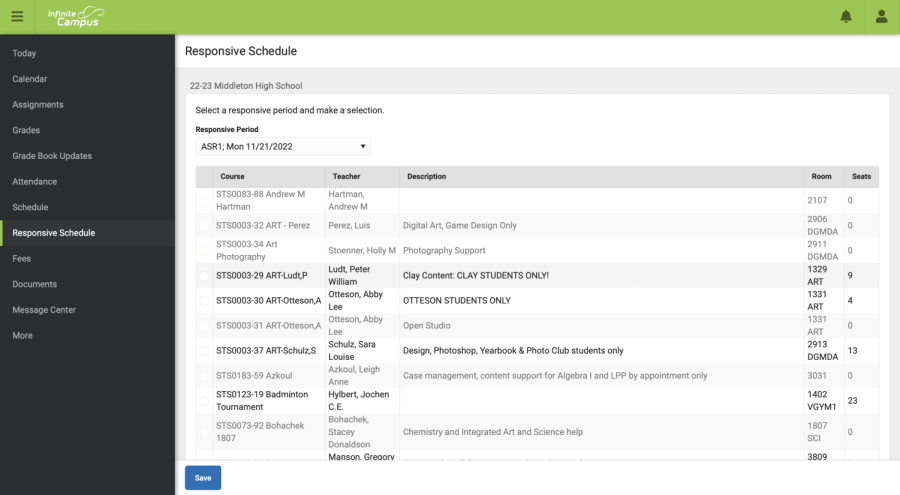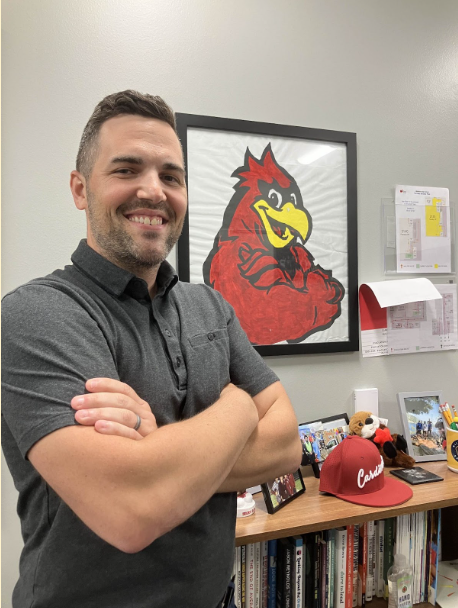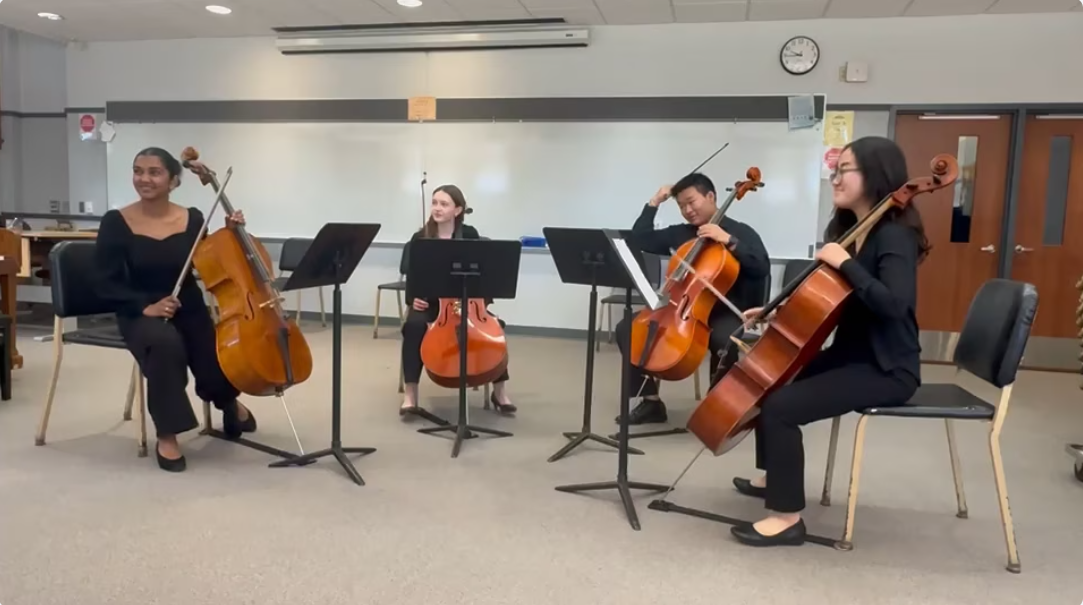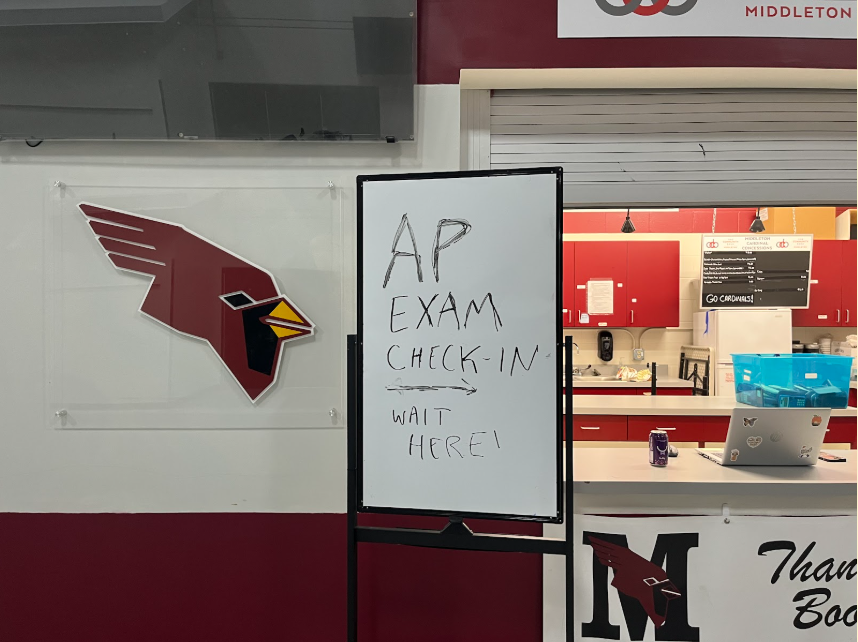Responsive Scheduling Leaves Students, Staff Frustrated
In place of FlexiSched, Middleton High School has transitioned to using Infinite Campus responsive scheduling for ASR registration and attendance. Students and staff have met the change with mixed feelings.
November 20, 2022
Since the latest revision to the new sign-up policy for All School Resource (ASR), Middleton High School’s (MHS) school-wide student-selected study hall period, was implemented on Oct. 31, 2022, students have been required to sign up for ASR a day in advance. Both students and teachers have been quick to find faults with this inflexible system, which, since the beginning of the year when it was first unrolled, has forced students and staff to adjust their ASR expectations.
Amid mounting frustration, many are still confused as to what the new policy’s implications really mean for the future of ASR. The root of the new policy is the recent ASR software change.
In the new Infinite Campus software, which replaced the long-standing FlexiSched system, all 9th, 10th, and 11th grade students are required to sign up for an ASR location by the end of the A day (4:00 p.m.) preceding the next day’s ASR. Students who fail to sign up within the timeframe are moved into an “unscheduled” offering and are unable to move themselves to a classroom ASR location, a source of great frustration among students. Though teachers are able to move students out of “unscheduled,” many have found it difficult, with a tedious rearrangement procedure. Students who remain “unscheduled” are marked unexcused absent.
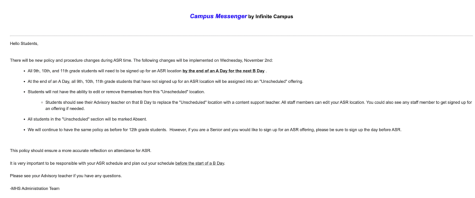
The reason for the change, according to MHS business and marketing teacher William Boehm, who has overseen the ASR sign-up transition, is to simplify attendance documentation during the student-selected study hall period. Unlike FlexiSched, Infinite Campus’ responsive scheduling is directly linked to the platform used to track school wide attendance in both scheduled courses and ASR. That is part of its appeal.
“It was very cumbersome moving that data from FlexiSched over to Infinite Campus,” Boehm said, explaining that the administration made the switch “to make sure that attendance was more timely and accurate.”
Last year, students could sign up for ASR after the block began, a flexibility they dearly miss under responsive scheduling. However, behind the scenes, that flexibility was a regular attendance headache. Every B day, Flexisched had already sent attendance data to Infinite Campus when students signed in to an ASR after 2:17 or 3:03. By the time they signed up, the automatic record of attendance had to be manually changed. In many instances, students were incorrectly marked absent. Unfortunately, this year incorrect absences have remained a problem for a different reason.
Sophomore Sam Pomroy has thus far avoided getting marked absent, but just barely.
“There have been multiple times where I signed up at, like, 3:42,” they said. “So many of my friends have been put in unscheduled [after signing up late], and the teachers can’t get them out of it.”
Students have found it difficult to plan so far in advance of ASR and often fail to sign up. Even Olivia Pan, who as a senior is not required to attend ASR, recognizes the limitations the new deadline places on student productivity.
“I think it’s sometimes annoying … when you have a class on a B day and your teacher wants you to come in for ASR but you can’t until two days after,” Pan said. Other students echoed that sentiment, saying the early sign-up deadline has made ASR more stressful and less useful.
Boehm acknowledges the change, but asks students to “take initiative.”
He explained, “If things change, that’s fine, you can change [your sign-up un]til the day of ASR, but sign up for a teacher ASR offering” before the deadline.
“We’re dealing with limitations in the software,” Boehm said. “We’re trying our best to make those limitations work to our school policy, but any time when we have this big of a school with this many teachers and this many students, we have to work with the constraints of the software. … That’s why we’re wanting to have the students sign up the day before, just to kind of make attendance smoother so there won’t be as many attendance correction forms, but we definitely hear the frustrations.”
Boehm and the administration have made efforts to communicate the features of the system to students through emails and have created helpful videos shown on the daily announcements. On Nov. 11, Boehm recorded a video to make the ASR sign-up process easier, teaching students how to easily look up for a teacher and course offering using the “search text” feature on their phones. He also explained the importance of signing up on the A day before, at the latest, to avoid placing more work on both students and teachers.
Despite his best efforts to bridge the gap, there is still a lapse between what students understand to be the restrictions and the reality of sign-up flexibility.
Because of the A day sign-up deadline, many students, like Pan, have found that signing up before they even see their B day teachers severely limits what they can get done during ASR — and when. But many do not understand that changing their sign-up on the B day of ASR is possible.
If students sign up for any class for ASR by the A day deadline, they are able to move ASR classrooms without submitting a lengthy attendance form because they are not put in “unscheduled.”
“As soon as they’re locked into that ‘unscheduled,’ they can’t move out,” Boehm said.
That attendance form to get out of “unscheduled,” is a new responsibility for teachers and another effect of the Infinite Campus software’s limitations.
At the beginning of this November, teachers were given administrative rights on Infinite Campus to manage student sign-ups; however, the software was overwhelmed by the inundation of attendance editors online, which often created issues with attendance accuracy. As a means to amend this issue, teachers now must submit a Google Form for each individual student wishing to change their placement from an “unscheduled” offering to a real ASR location, an especially tedious task.
Vidhi Patel, a junior, has had repeated issues with ASR, both in getting signed up for ASR after the deadline and changing her sign-up on B days, and has had to ask her teachers to submit the form and move her ASR locations several times. It has been inconvenient.
“When I do have to change it on B days I have to ask my teachers and I have to wait for advisory,” she said. “I can’t do it right then and there.”
The source of frustration with the policy is confounded by rumors about why it was implemented. The predominant rumor claims its goal is to make sure that students are not skipping ASR.
“I heard from someone that because a lot of kids are absent for ASR — and you know how now parents get emails and phone calls if you’re absent for ASR — the parents call the secretaries and they basically start yelling at them, like ‘Why is my kid absent?’ and then, because of that, they did this whole thing,” said Patel.
Boehm did not comment on whether those rumors influenced the school’s decision to change the sign-up policy, but he did recognize, again, that the change has been upsetting.
“I’m frustrated, the students are frustrated, teachers are frustrated,” he said.
As a school-wide problem that has posed difficulties for people at all different levels, Boehm reminded students that signing up the day before ASR is the best way to create less of a burden for both themselves and their teachers.
Since its inception, the new system has been a continued source of confusion and has fueled the schism between students, staff and administration, but in reality, ASR scheduling disasters are a shared nightmare for both parties.
“There’s been frustration from teachers, staff, and from the administration level,” Boehm said. The issues with early sign up and misrecorded attendance are purely an issue of the platform, and the cause, not the result, of the policy change itself.



